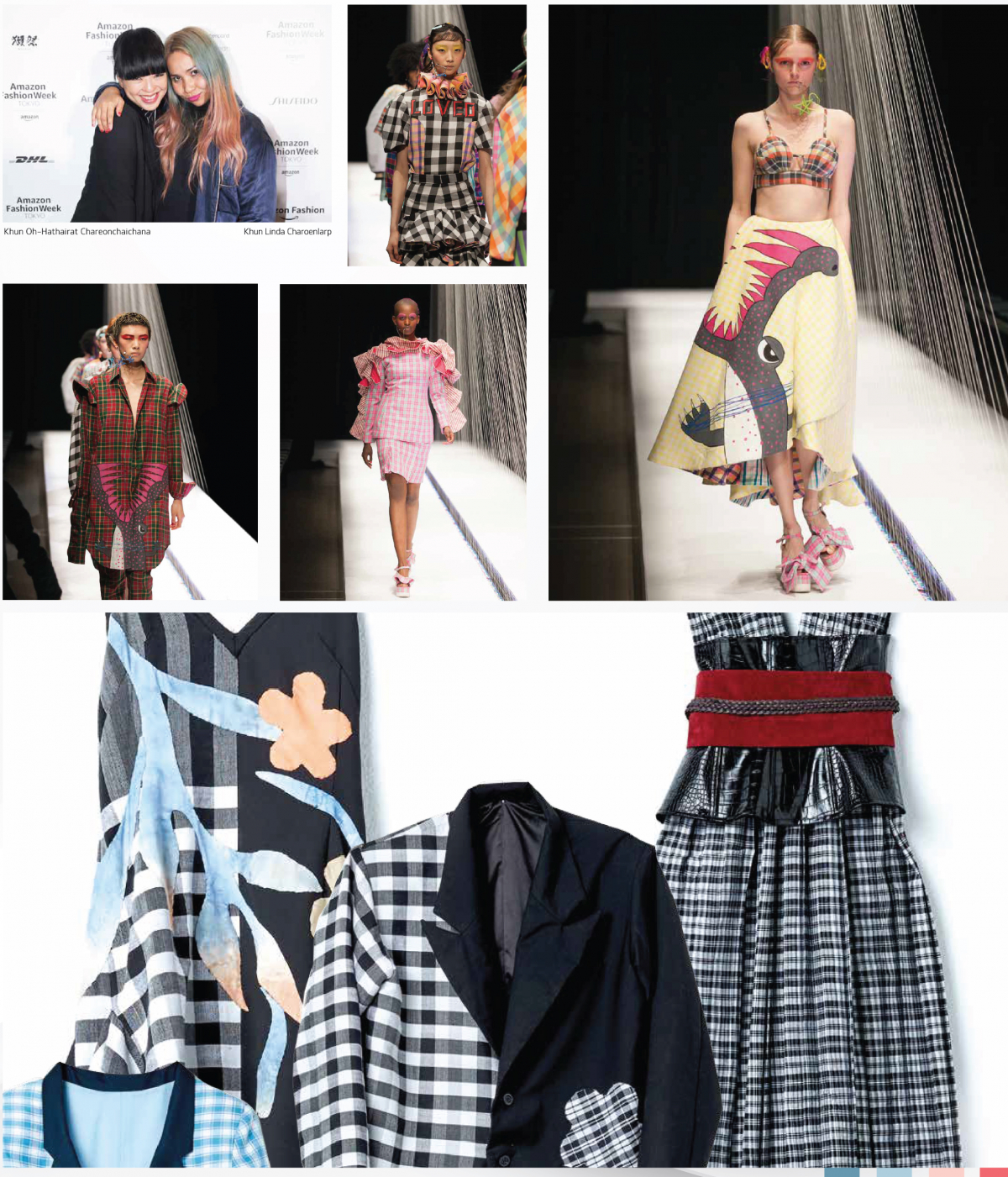Local Pakaoma Project – a Thai Handicraft

"Pakaoma" is a local fabric of Thailand with a long history. It is a versatile fabric that Thai people has been using in their everyday life for a long time and the weaving of Pakaoma fabric has been adopted by hundreds of communities around the country as supplementary occupation after farming. For this reason,the “Pakaoma project working team of Pracharath Social Enterprise (Thailand) Co., Ltd., under the operation of the Committee on Economic Development in conjunction with the Community Development Department, Ministry of Interior, initiated the “Local Pakaoma Thai Handicraft” project to create awareness and promote the variety of colours and functional benefits of the Pakaoma fabric. Coupled with the development of quality production techniques as well as producing new product ranges of hand-woven Pakaoma fabrics to meet customers’ needs as well as adding-value to the local Pakaoma fabric, which has been alongside the rural Thai households for many years. Furthermore, this will also provide sustainable incremental income for the communities.
The project focus on creating value through 4 dimensions, namely
create awareness and interest in hand-woven pakaoma fabric in both the domestic and international markets
innovative production and processing of hand-woven pakaoma fabrics to increase varieties of usages
knowledge sharing amongst communities and experts in various fields, such as the use of natural dyes and packaging designs development
push for the community’s protection of intellectual property rights, in terms of fabric patterns copyrights, trademarks and patents
2018 - 2019
Link Youtube: Pictures Collection from the Local Pakaoma Project – a Thai Handicraft 2559-2560
In the first year, the project kicked off with the search for pakaoma fabrics with outstanding identities, such as interesting anecdotes, historical background, artistic beauty and distinctive identity, which 519 pieces of work were submitted for selection from 499 communities of which 69 pieces were shortlisted in the first round.
The selected 69 communities participated in workshops and various training sessions organized to further develop and enhance their skills in order to create a newly developed piece of work for submission in the final round, which the winners and runners-up of each categories are as follows:
Distinct Community Identity Category
(natural raw materials or natural raw materials with synthetic materials of natural colors or mixture of natural and synthetic colors)
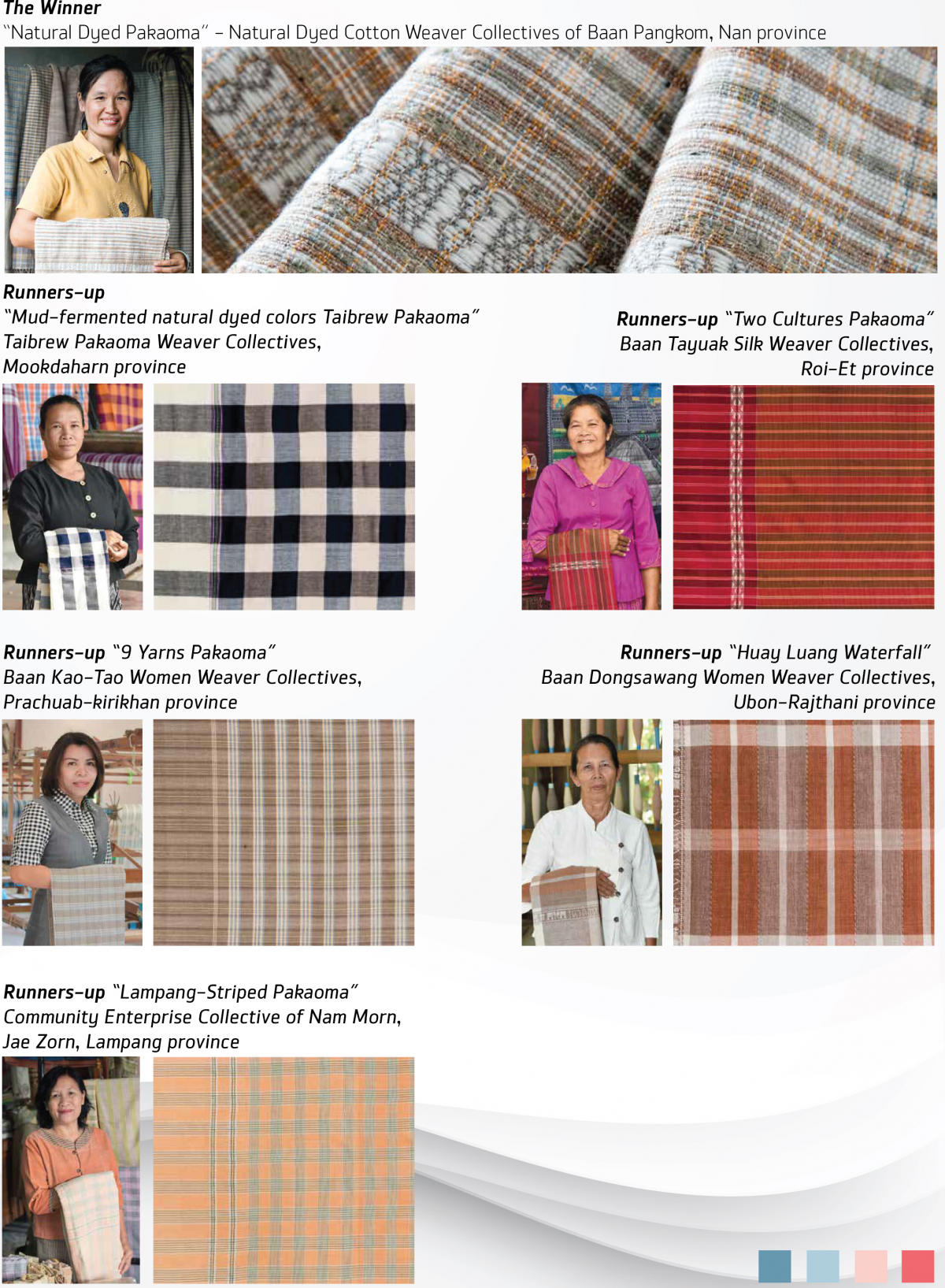
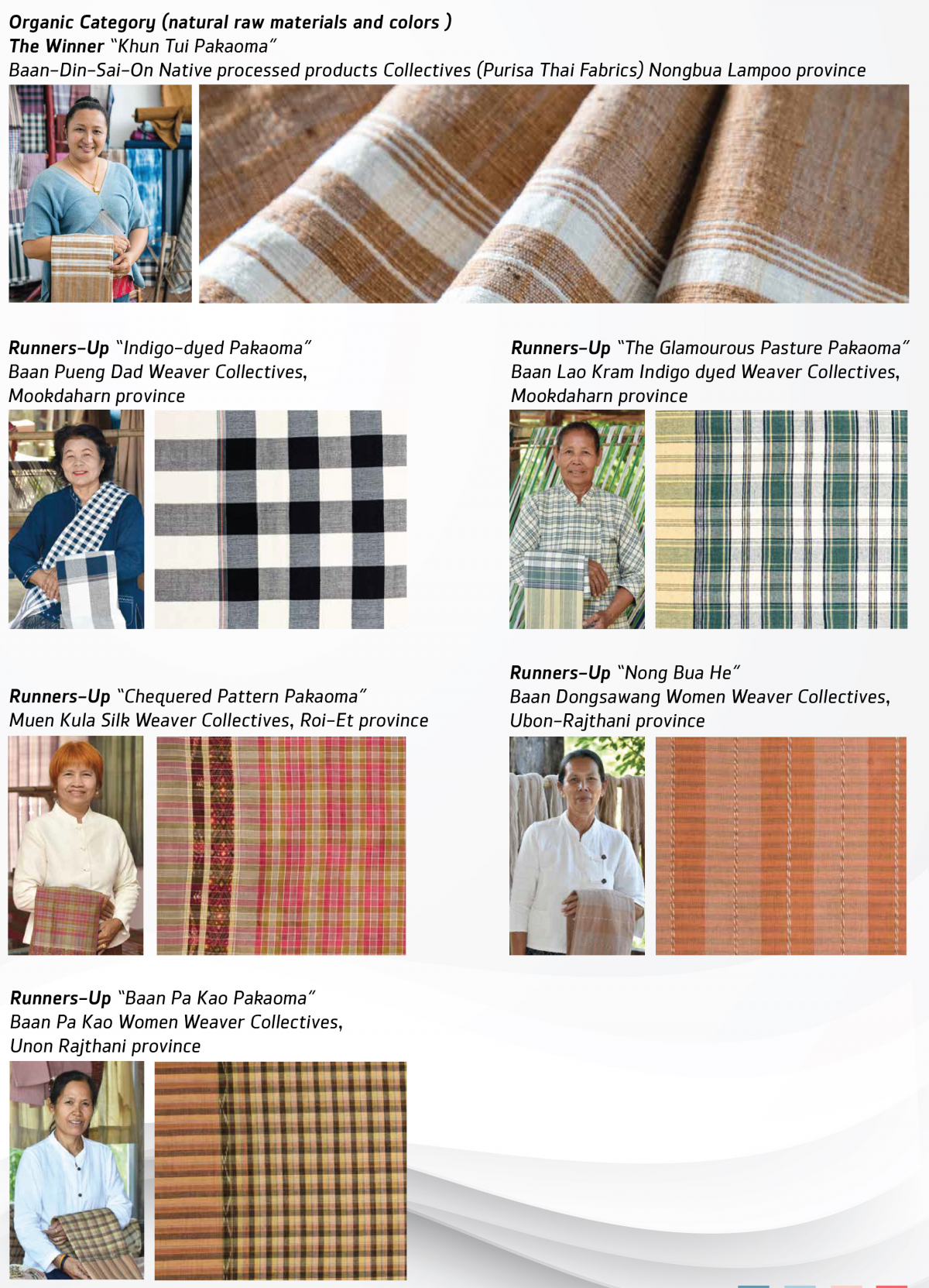
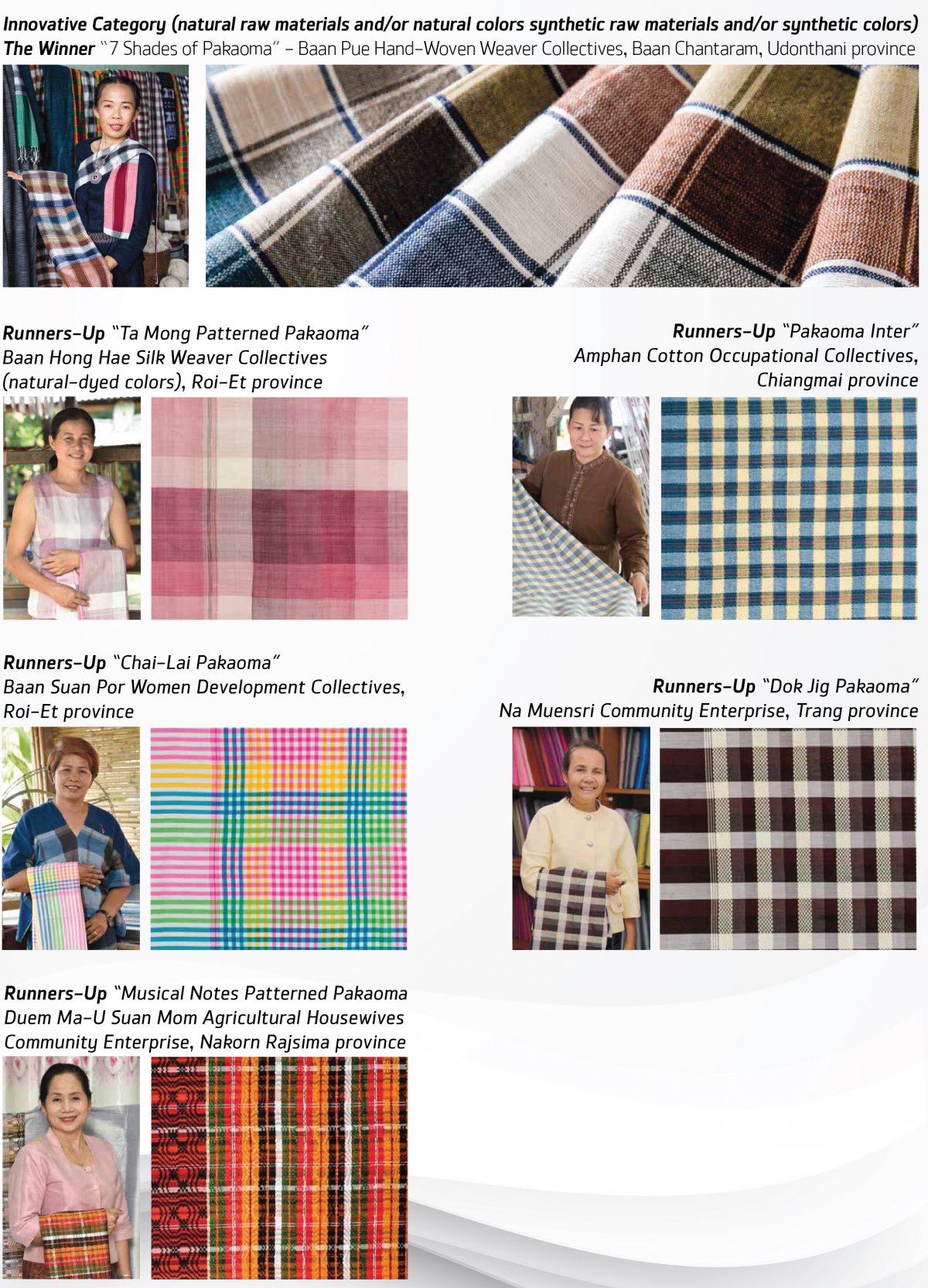
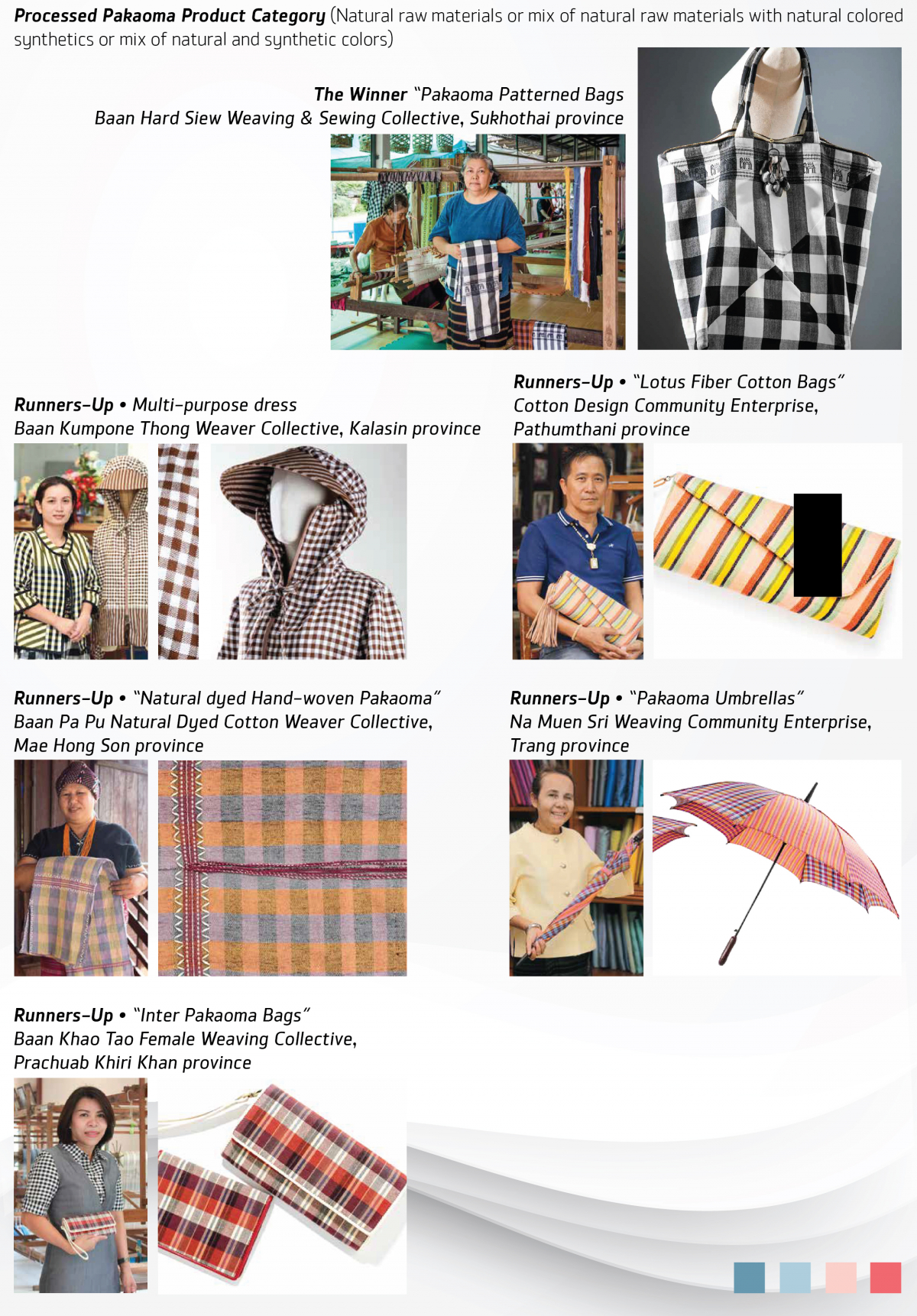
Throughout the 1 year of project implementation, Pracharath Rak Samakki Social Enterprise (Thailand) Co., Ltd., supported the communities in proceeding the trademarks and intellectual property protection registration, which 13 Copyrights, 8 Trademarks and 1 Petty Patent were registered, generating a total of over 27 Million Baht revenue for the communities as a whole.
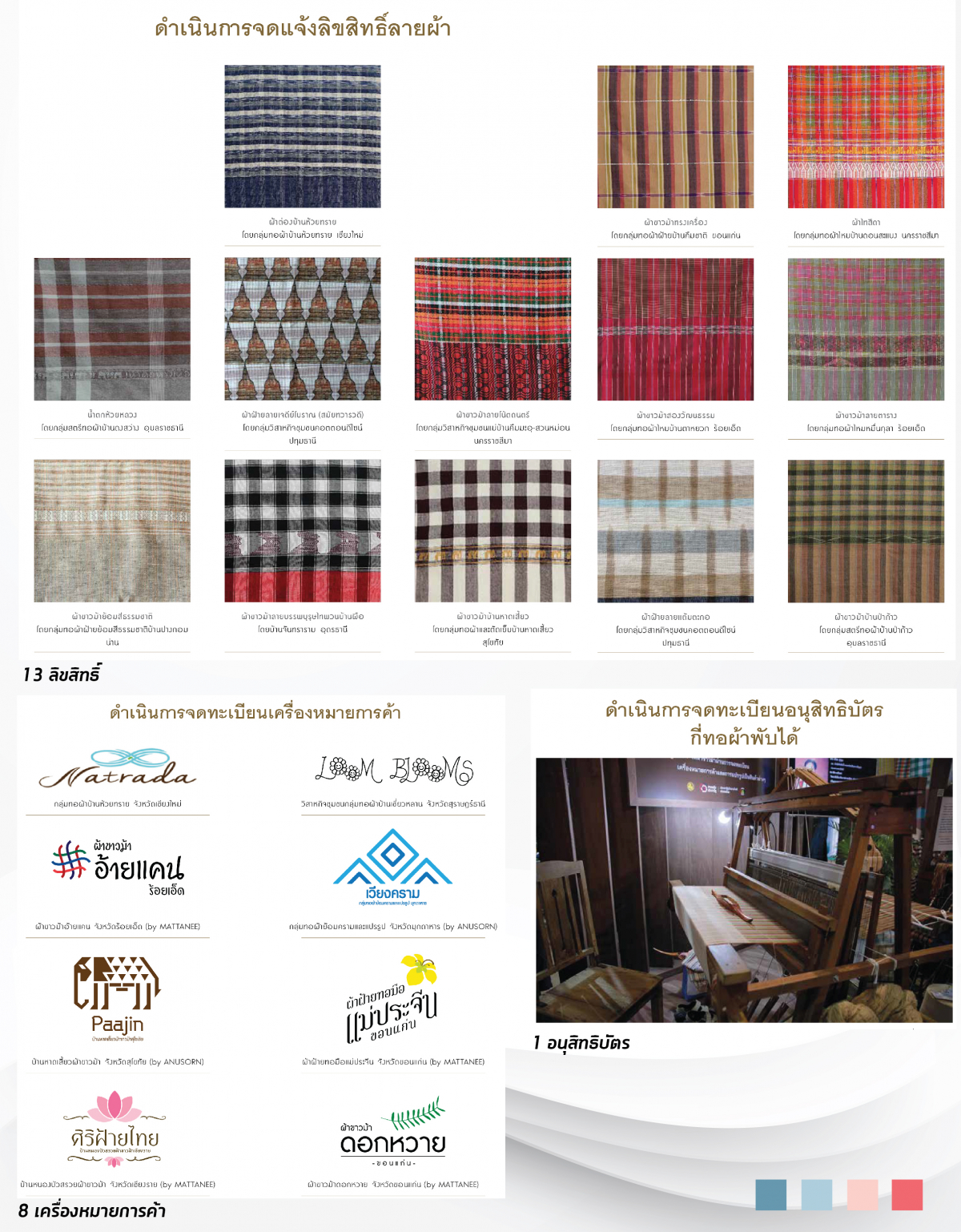
In addition, more than 30 sets of hand-woven Pakaoma attires were also introduced to the international fashion stage in Japan on 20-22 March 2017, at the Amazon Fashion Week Tokyo 2017. The collection was designed by a talented fashion designer, Khun Linda Charoenlarp, owner of the LALALOVE clothing brand, together with Khun Oh-Hathairat Chareonchaichana, in collaboration with The Department of Community Development and the Education Institute Support Activity or EISA which provide opportunities for students in the field of fashion design from various educational institutions to submit Pakaoma clothing designs for the contest providing the stage for youths to show their abilities and creativity as well as the development of the development of clothing from products made from Thai wisdom such as Thai loincloth to be accepted internationally Which is a stage for young people to show their ability creativity as well as the development of fashion design clothing from products made from Thai wisdom such as the Thai Pakaoma, to be accepted internationally. 